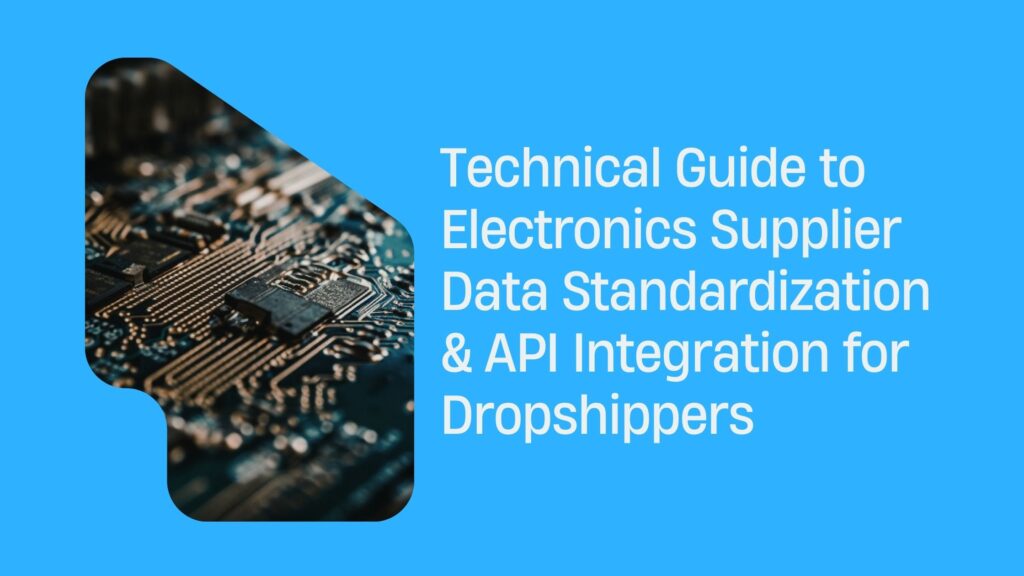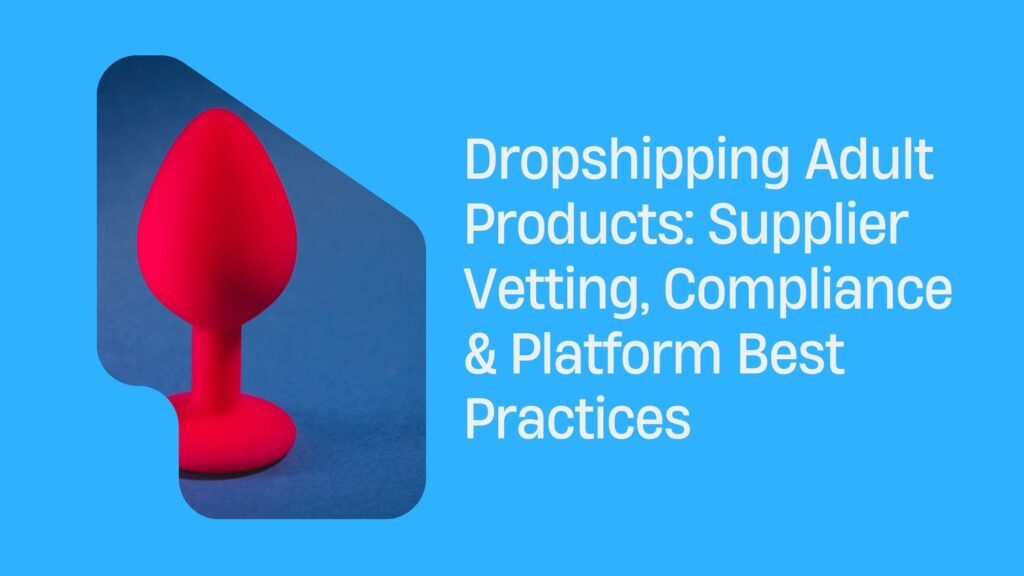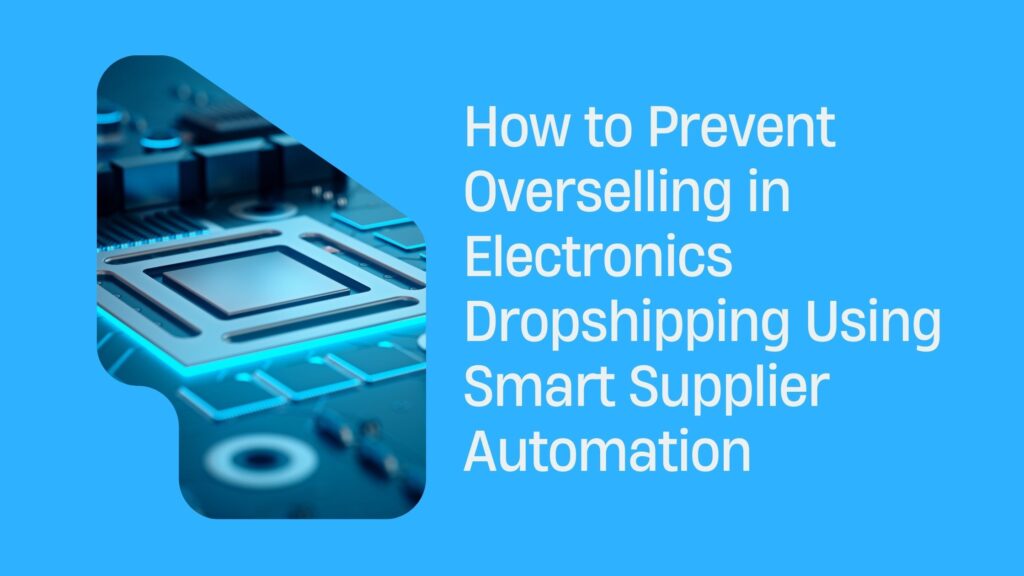How to Source Wholesale Food Products: A Guide for Finding the Best Wholesale Grocery Distributors
Sourcing wholesale food products is a must for grocery stores, restaurants, and online food businesses. It helps keep shelves stocked, menus full, and customers satisfied. Whether you sell fresh produce, snacks, or frozen meals, buying in bulk is often the smartest move.
The right wholesale grocery distributors can save you money, reduce stock issues, and give you access to a wide range of products. A good supplier helps you stay consistent and competitive, no matter your business size.
In this blog, you’ll learn about different types of food suppliers, how to choose the right one, and where to find trusted vendors for your food business.
Who Needs Wholesale Food Products?
Sourcing wholesale food products is important for many types of businesses. Whether you’re running a store, managing a kitchen, or launching a food brand, buying in bulk saves money and ensures you always have stock.
Here’s Who Benefits Most:
Retailers
Retailers need a steady supply of products to keep shelves stocked. Buying from wholesale grocery distributors helps them offer a wide variety of items—from pantry basics to specialty foods—at competitive prices.
Restaurants, cafes, and catering services
Food service businesses rely on consistent quality and availability. They need fresh ingredients, frozen goods, and pantry items delivered regularly. Wholesale suppliers help them manage costs and meet customer demand without running out of stock.
Meal prep companies and food subscription boxes
These businesses need reliable sources for proteins, produce, grains, and packaging. Sourcing bulk ingredients allows them to keep margins healthy and prep meals efficiently. They often work with wholesale food products providers who can support custom needs or recurring shipments.
Institutions
Organizations serving large groups need safe, affordable food on a schedule. They benefit from bulk pricing, predictable delivery, and compliance with food safety standards. Many use contracts with large wholesale grocery distributors.
Small businesses looking to sell packaged or specialty foods
Whether at local markets or online, small food brands need access to affordable ingredients or resale products. Working with wholesale suppliers allows them to experiment with new items, keep inventory manageable, and build their offerings.
Key Categories of Wholesale Food Products
When sourcing wholesale food products, it’s important to understand the main categories most suppliers offer. Each category serves different customer needs and can help you build a well-rounded inventory.
Dry Goods and Pantry Staples
These are the everyday essentials that sell year-round and have long shelf lives.
- Includes rice, pasta, flour, grains, sugar, salt, and canned goods. For consistent quality and supply, many businesses work with rice exporters in India.
- Ideal for retailers, restaurants, and meal prep services
- Easy to store, ship, and buy in bulk
- Great for building cost-effective inventory
Dry goods are usually available in a wide range of packaging sizes, making them flexible for both small and large-scale operations.
Fresh and Frozen Foods
This category requires careful handling but is high in demand.
- Includes fresh produce, dairy, eggs, meat, seafood, and frozen meals
- Needs cold chain logistics for safe delivery
- Often has regional and seasonal sourcing options
- Appeals to both retail and foodservice buyers
Suppliers with strong cold storage and delivery capabilities are essential if you plan to include these in your offerings.
Snacks and Packaged Foods
These are fast-moving items with broad appeal.
- Covers chips, cookies, protein bars, soft drinks, and bottled juices
- Also includes ready-to-eat meals and convenience items
- Perfect for online stores, convenience shops, and vending businesses
- Often come with branded packaging, increasing retail appeal
This category helps increase cart value with impulse-buy products and packaged bundles.
Organic and Specialty Foods
These serve niche markets and trend-focused consumers.
- Includes gluten-free, vegan, keto, non-GMO, and fair-trade items
- Covers ethnic foods, international ingredients, and health-focused products
- Requires suppliers that are certified and transparent about sourcing
- Great for health stores, wellness brands, and specialty retailers
Offering specialty foods can set your store apart and build customer loyalty within specific diet or lifestyle segments.
What to Look for in a Wholesale Grocery Supplier
Choosing the right supplier is key to keeping your food business running smoothly. Below are the most important things to check when comparing wholesale grocery distributors.
Product Selection and Inventory Reliability
What to Check
- Wide range of food categories
- Bulk buying options
- Seasonal and specialty items
- Consistent stock levels
Why it Matters
You need a supplier that can meet your exact product needs without delays. A strong selection helps you offer more variety to your customers, while reliable stock ensures you never run out of bestsellers.
Pricing and Minimum Order Quantities (MOQs)
What to Check
- Competitive pricing per unit
- Discounts for large-volume orders
- Low or flexible MOQs
Why it Matters
Affordable pricing boosts your profit margins. Low MOQs help small businesses buy only what they can store and sell. As you grow, volume discounts can increase your savings over time.
Shipping and Fulfillment Capabilities
What to Check
- Cold chain logistics for perishable goods
- Fast and predictable delivery schedules
- Protective and food-safe packaging
- Tracking and real-time updates
Why it Matters
Proper shipping prevents spoilage and delays. If you’re dealing with frozen or fresh items, a reliable cold chain is non-negotiable. Make sure packaging keeps products safe and presentable.
Certifications and Compliance
What to Check
- FDA registration and compliance
- Food safety certifications (e.g., HACCP, SQF)
- Accurate product labeling and allergen info
- Organic, non-GMO, or fair-trade certifications (if needed)
Why it Matters
Food safety is serious. Always work with certified suppliers who follow industry standards. This protects your business and builds trust with your customers.
Customer Support and Order Tracking
What to Check
- Easy-to-reach support team
- Help with placing and managing orders
- Reorder tools or reminders
- Clear return and refund policies
Why it Matters
Good communication makes a big difference. You’ll want fast answers if there’s an issue with stock, delivery, or product quality. A reliable supplier will also make it easy to reorder or handle returns without stress.
Where to Find Trusted Wholesale Grocery Distributors
Finding the right supplier is key to running a smooth and profitable food business. Here’s a breakdown of the best places to look when sourcing food in bulk. These options cover both large-scale operations and smaller, local businesses, giving you flexibility based on your goals.
National Distributors
Big distributors are ideal if you need a wide range of food items and consistent delivery across multiple locations. These companies have established supply chains and strong reputations.
- US Foods – One of the largest foodservice distributors in the U.S. Offers everything from fresh produce to kitchen supplies.
- Sysco – Known for its extensive product range and reliable service for restaurants, institutions, and retailers.
- UNFI – A leading natural and organic foods distributor. Great for businesses focused on healthier or specialty items.
- KeHE – Specializes in natural, organic, and specialty food products. Offers nationwide distribution with a focus on ethical sourcing.
These wholesale grocery distributors offer strong support, large inventories, and reliable delivery schedules.
Regional & Local Suppliers
Working with local or regional suppliers gives you access to fresher products and quicker delivery. They’re often more flexible with order sizes and may offer more personalized service.
- Shorter delivery times mean fresher produce and dairy.
- Easier communication and relationship-building.
- Support for local farms and businesses.
- Lower shipping costs for nearby locations.
This option works well if you’re serving a specific area or want to highlight local ingredients in your store or menu.
Online Wholesale Platforms
Online B2B marketplaces have made sourcing easier, especially for small or online-only businesses. These platforms let you browse, compare, and order from multiple brands in one place. For retailers managing both physical stores and eCommerce operations, integrating these platforms with an online ordering system for grocery can streamline inventory management, automate reordering, and ensure real-time stock updates.
- Faire – Best for discovering emerging food brands and ordering small-batch or specialty items.
- RangeMe – A product sourcing platform used by retailers to find new food suppliers.
- GreenDropShip – Focused on natural, organic, and specialty food dropshipping and wholesale.
- Alibaba – Ideal for packaged or shelf-stable goods. Great pricing for bulk imports but requires careful vetting.
These platforms are convenient and helpful for testing new products or managing inventory online.
Food Hubs and Co-Ops
Food hubs and cooperatives are great if you’re looking for sustainably sourced, local, or organic foods. These are often nonprofit or community-based operations that connect small producers with buyers.
- Access to farm-direct products and seasonal goods.
- Ideal for businesses with an eco-conscious or health-focused customer base.
- Helps support smaller farms and promote food transparency.
- Some offer group buying options, reducing costs for smaller retailers.
This is a good fit for stores or restaurants that want to promote local sourcing and differentiate through product origin.
Each of these options can serve different types of businesses, depending on your size, product focus, and delivery needs. Mixing and matching your sources is also a good strategy to stay flexible and meet demand.
Tips for Building Supplier Relationships
Building strong relationships with your food suppliers can make a big difference in your business. Here’s how to do it right:
Start with Small Test Orders
Before committing to large quantities, place a small order to check product quality, packaging, and delivery timelines. This gives you a chance to test how the supplier handles orders without taking on too much risk.
Build Trust with Consistent Communication
Stay in touch regularly. Respond to emails quickly and be clear about your expectations. Good communication helps avoid misunderstandings and keeps the supply chain running smoothly. Many wholesale buyers also use digital business cards to easily share their contact details and maintain consistent communication during supplier meetings and trade shows.
Negotiate Pricing and Delivery Terms Over Time
Once you’ve built some trust, talk about better pricing or more flexible delivery options. Suppliers are more likely to offer better deals to long-term buyers, especially if you’re ordering wholesale food products in volume.
Visit Supplier Facilities if Possible
If the supplier is local or allows site visits, go see how they operate. You’ll learn more about how they manage inventory and quality control. It also shows you’re serious about the partnership.
Pay Invoices On Time and Give Feedback
Timely payments keep the relationship professional and reliable. Also, if you notice something that could be improved—like packaging or product consistency—share that feedback. Most wholesale grocery distributors appreciate honest input that helps improve service.
Common Sourcing Mistakes to Avoid
Sourcing wholesale food products can be simple if you know what to watch out for. Many first-time buyers make mistakes that can lead to product loss, poor quality, or wasted money. Here are a few key things to avoid:
Not Checking Certifications or Food Safety Standards
Don’t skip this step. Always make sure your supplier meets local food safety laws and has the right certifications—like FDA approval, HACCP, or USDA certifications. This protects your customers and your business.
Ignoring Shelf Life or Storage Requirements
Some products need refrigeration. Others may expire quickly. Always ask about shelf life and ideal storage conditions. This is especially important if you’re ordering in bulk or selling perishable goods.
Over-ordering or Underestimating MOQs
Ordering too much can lead to spoilage or storage issues. Ordering too little may mean higher prices or missed discounts. Understand the supplier’s minimum order quantity (MOQ) and plan based on your sales volume.
Choosing Based Only on Price, Not Quality
Going with the cheapest option isn’t always smart. Low prices can mean poor packaging, expired stock, or weak supply chains. Quality matters, especially when working with wholesale grocery distributors who serve food businesses. Always sample products and check reviews before committing.
Final Thoughts
Sourcing smart starts with knowing what to look for. Focus on product variety, fair pricing, and reliable delivery when choosing your wholesale grocery distributors. Quality matters—especially with wholesale food products—so always check certifications and freshness.
Don’t rush into long-term deals. Take your time to test suppliers, compare options, and ask the right questions. A strong supplier relationship will save you time, reduce stress, and help your business grow.



